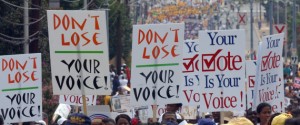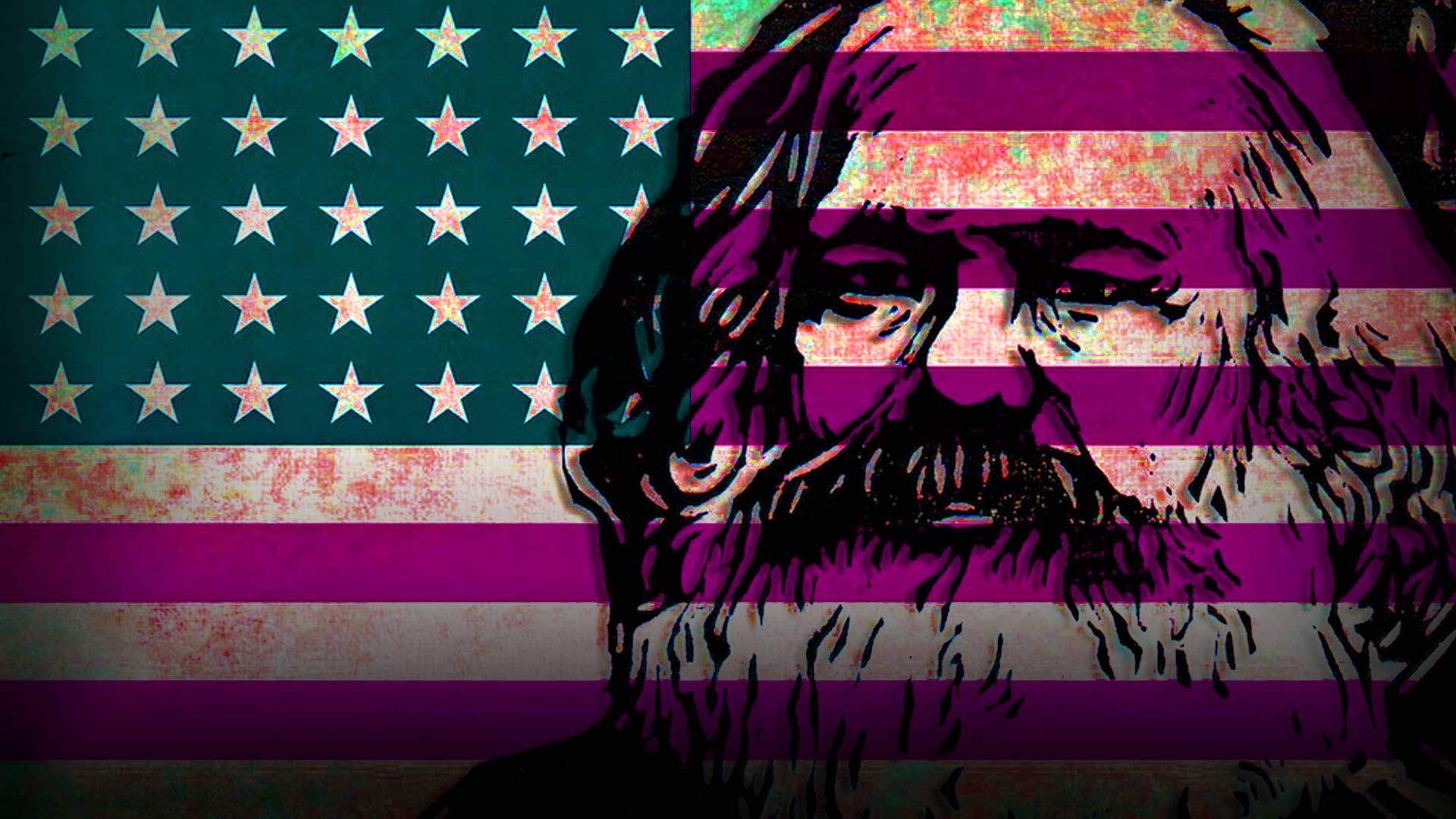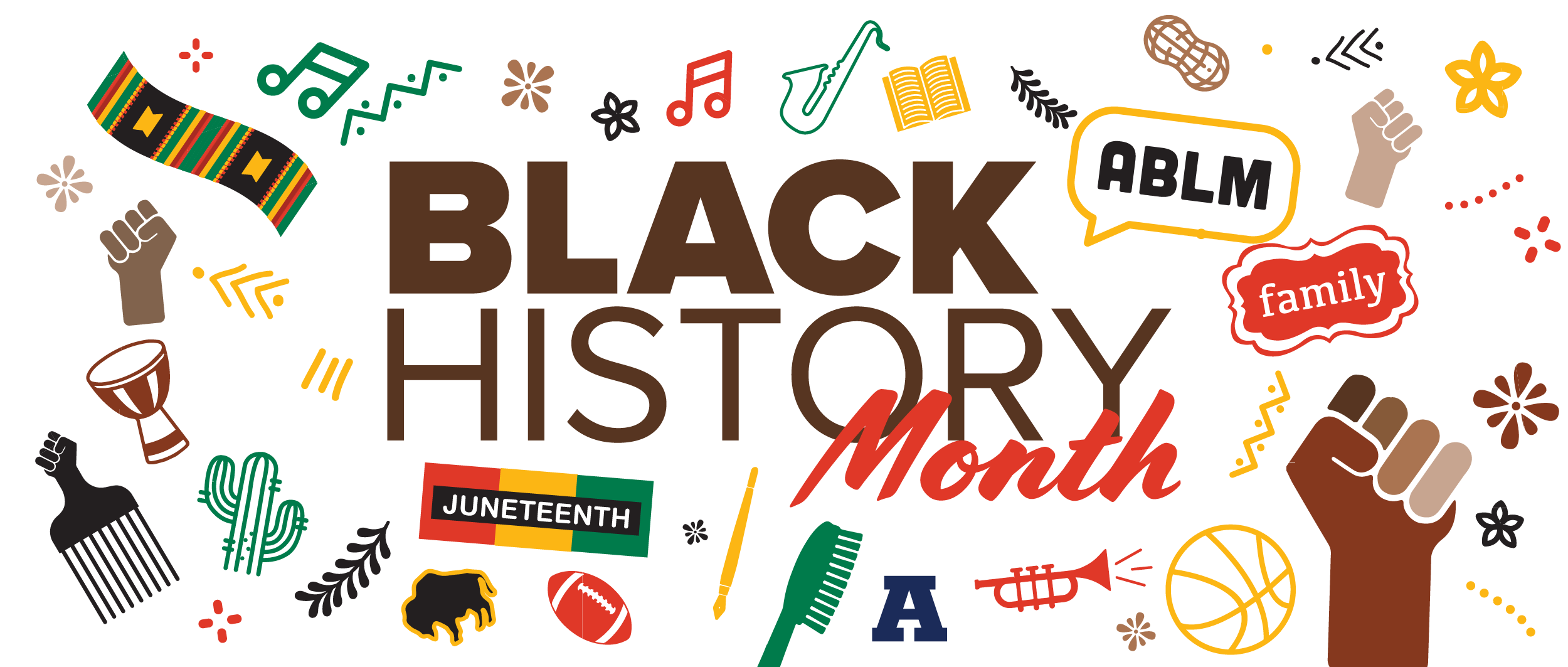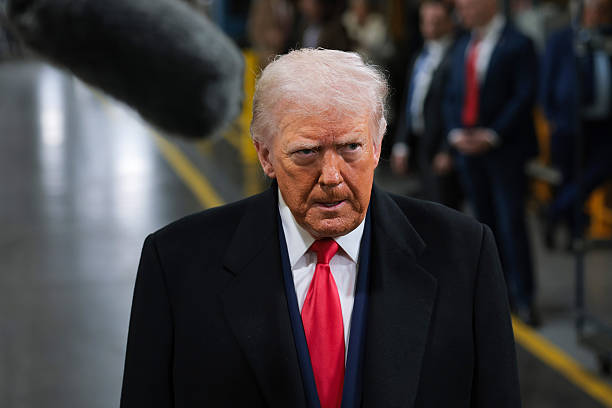(ThyBlackMan.com) The landmark 1965 Voting Rights Act must be renewed every twenty five years. In 1981 despite some grumbles and idle threats to oppose its renewal from a few in the Reagan administration, President Reagan dutifully signed the renewal legislation. A quarter century later, again despite the grumbles and idle threats from some in Congress to delay or even block passage, President Bush again dutifully signed the renewal legislation with a big congratulatory celebration at the White House signing. The renewal of the Voting Rights Act by two conservative GOP presidents seemed to assure that any effort to scrub the Voting Rights Act from the federal books was a pipe dream. However, that may soon change. A federal lawsuit by Shelby County, Alabama has quietly worked its way up through the appeals courts. The county wants much of the Act dumped and has recycled the same old argument that it is outdated, discriminatory, and a blatant federal intrusion into states rights. In times past this claim would have gone nowhere.
But during the GOP presidential debates Texas Governor Rick Perry lambasted the Act. That squarely put it back into public focus and political play. State Attorney Generals in three states have endorsed the Alabama county’s challenge. The announcement that Attorney General Eric Holder will vigorously enforce provisions of the Voting Rights Act to prevent voter suppression raised an additional howl from conservatives. Then there’s the Supreme Court. There is little to stop the court from taking a fresh look at the Act, and even ruling that the key requirement that Southern states get  “preclearance” from the Justice Department before making any changes in its voting rights laws and procedures is unconstitutional. There are a slew of other challenges in addition to Alabama’s to the Act that could give the court’s five conservative judges more than enough ammunition to scrap the Act.
“preclearance” from the Justice Department before making any changes in its voting rights laws and procedures is unconstitutional. There are a slew of other challenges in addition to Alabama’s to the Act that could give the court’s five conservative judges more than enough ammunition to scrap the Act.
The crop of Tea Party driven House Republicans could give the court even more cover to question the constitutionality of the Act. GOP presidential candidate Ron Paul would be one of those. He’s publicly boasted that he would not have backed the 1964 Civil Rights Act if he had been in Congress then. On the fortieth anniversary of the Civil Rights Act signing in 2004 Paul opposed the symbolic congressional resolution lauding it. Though Bush signed the renewal of the Voting Rights Act in 2006 a core of House Republicans stalled the legislation for more than a week and demanded that hearings be held. They used the same old argument that it punishes the South for past voting-discrimination sins, and they didn’t like the idea of bilingual ballots. A renewed assault on the Act fits right into the Tea Party’s endless attacks on the alleged federal government for over intrusiveness. It would also be set against the backdrop of the hotly contested 2012 battle for the White House and conservatives efforts to maintain or expand their congressional numbers.
The GOP has already pecked at eroding the Act with the rash of photo identifications laws that the GOP governors and GOP controlled state legislatures have enacted. They have one aim, and that’s to discourage and damp down the number of minority and poor voters that overwhelmingly vote Democratic. Despite the solid bipartisan support that the Act got in prior congresses and from GOP presidents, the Act has always been more controversial than many have believed. The popular myth is that congressional leaders were so appalled and enraged at the shocking TV clips of Alabama state troopers battering civil rights marchers in Selma in April 1965 that they promptly passed the landmark law that restored voting rights to Southern blacks. What’s forgotten is that the marchers were there in the first place because the bill was badly stalled in the Senate and the House. It took nearly five months to get the bill passed.
Then Senate minority leader, Illinois Republican Everett Dirksen, heaped amendments on the bill that included scrapping the poll tax ban, adding exemptions and escape clauses for Southern counties, and excluding all states outside the South. House Republicans tacked more amendments on the bill to weaken it. The fight over these amendments dragged on for weeks in Congress.
The biggest fight, though, was over the poll tax ban. The tax was the most odious and hated symbol of Southern racial exclusion. Civil rights leaders were enraged when the Senate refused to eliminate the poll tax, arguing that it wouldn’t pass constitutional muster. House leaders agreed. There’s no real threat that a majority in Congress will switch gears and vote to scrap the Act in the immediate future. However, the action of many state officials, attorney generals and the always looming shadow of the Supreme Court are strong warnings that the Voting Rights Act could again be in the sights of the GOP.
Written By Earl Ofari Hutchinson
One can find more info about Mr. Hutchinson over at the following site; TheHutchinson ReportNews.
Also feel free to connect with him through twitter; http://twitter.com/earlhutchinson

















@Nicholas and Scotty
I am in the South. I am 63. I haven’t missed an election anywhere I have lived since I was 21. Yeah, then we had to be 21. I moved to NY at 18. I did my best to educate myself to be as informed as I could become by the time I received the franchise to vote. Yet, I do not think we need to chide any rights (gay or otherwise) to promote voter rights. Some esteem property rights over civil right. Wrong. Civil rights over property rights. Wrong. Individual rights. Right! Equal protection. Right! We must multitask. We must do our collective and individual best to keep progressing to realize the ideal. Thank you for this timely article!
Thanks Scotty, our plight would be so much better if others would heed your well thought out comment on the state of the black community’s voting habits.
I might add that, this upcoming election is extra important because the next president will appoint at least 2 Supreme Court Justices and a progressive Congress is essential to make that work.
My opinion is that if the Black voting bloc would stop taking elections off (Mid-Terms) we would not be having many of these conversations or facing many of threats. Because the majority of Black people only turn out every four years to elect a President, we end up paying the price with the election of far,far right wing extremist from the Republican party. The Tea People told you what there were going to do come midterms and apparently no-one in the Black community took them serious. Not only did these people take over the House but nearly took over the Senate and captured the legislatures and Governor mansion in many states. This is what you get when you do not take your right to vote seriously and exercise it at every opportunity. Of course there will be a huge turnout of Black folks again in 2012 and Obama will be re-elected but come 2014, we will be right back in the same situation. Too bad Mr. Obama did not move on making sections of Voting Rights Act permanent when he had an opportunity but hey, Gay Rights are more important than our civil rights.